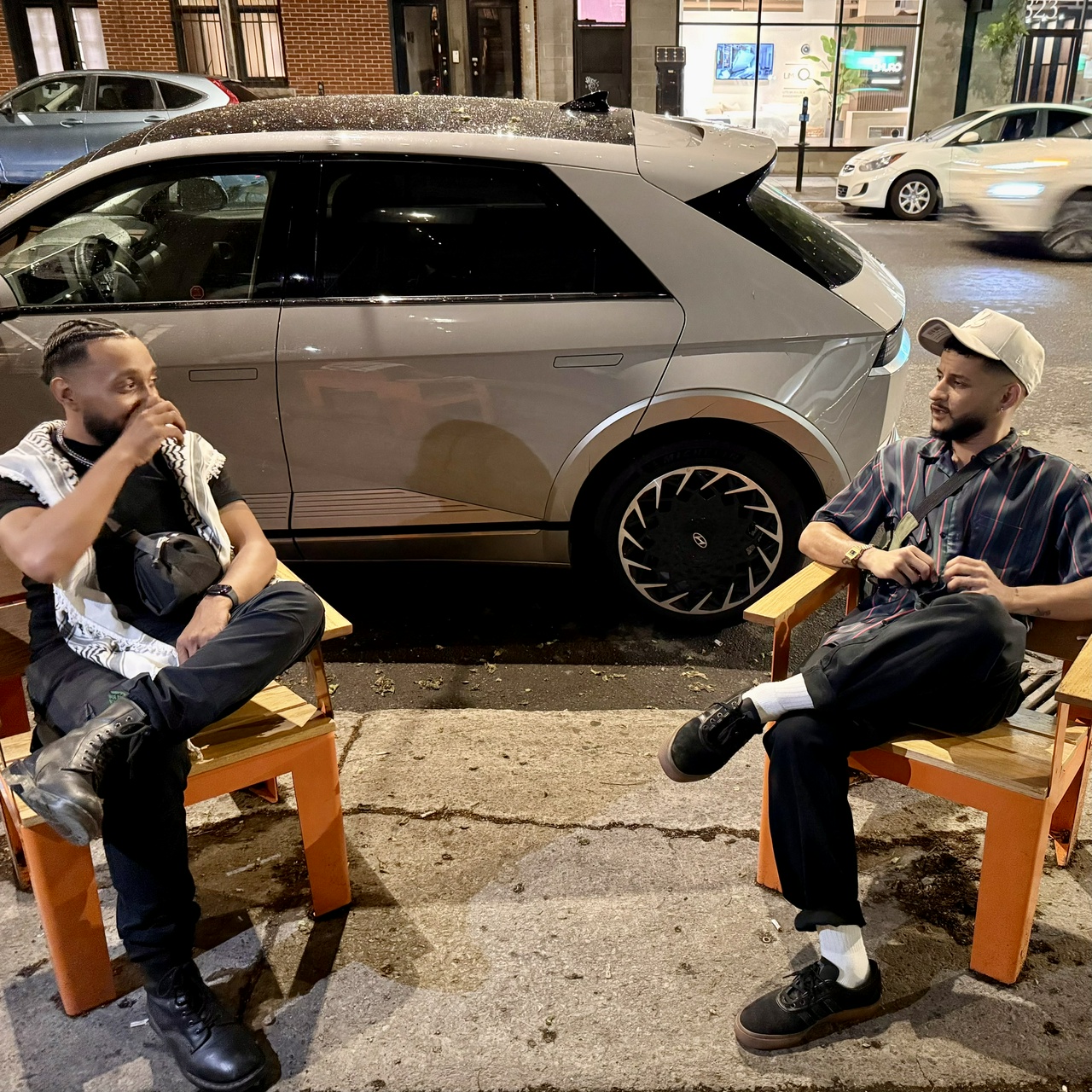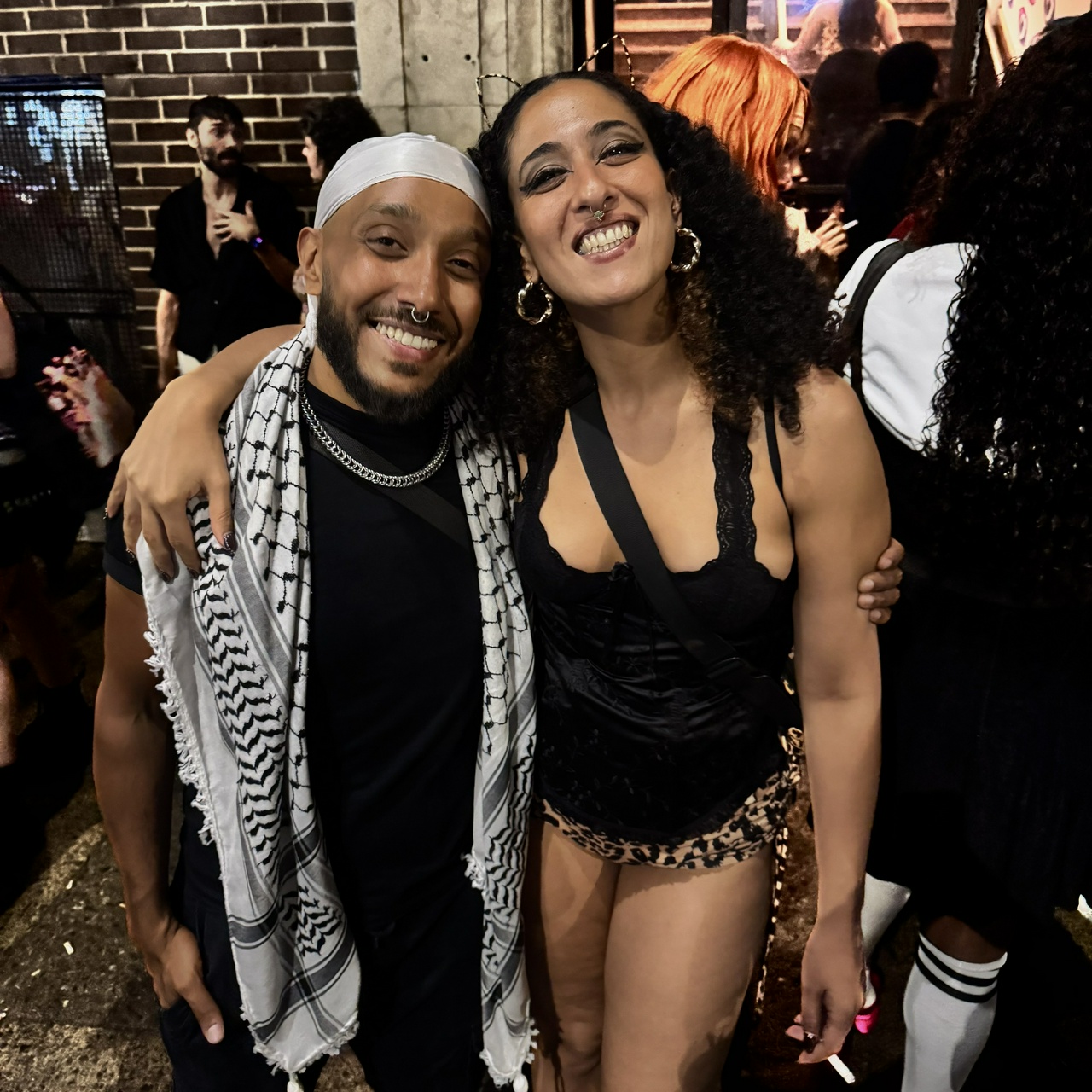just enough

intermission. outside the ball. boots up. talk moving. nothing profound. just enough to reset before stepping back in.
#tiohtiàke #drift #blackness #queerness #holdings #fragments

intermission. outside the ball. boots up. talk moving. nothing profound. just enough to reset before stepping back in.
#tiohtiàke #drift #blackness #queerness #holdings #fragments

me and mother phoenix. mid-show, mid-shift, but nothing uncertain.
the name had already settled. this was the exhale. not just a mother— my friend, my people, my kin.
some moments don’t need a mic. just light, sweat, knowing.
#tiohtiàke #drift #holdings #blackness #queerness #fragments #refusals
 for one of my best ones.
the candles held.
so did we.
strawberries, sugar, a whole lot of light.
for one of my best ones.
the candles held.
so did we.
strawberries, sugar, a whole lot of light.
not a performance of joy— the real thing. held in the breath, shared in the room.
this is how we stay.
#tiohtiàke #drift #holdings #queerness #blackness #fragments #refusals

a march of mourning. they carry the names in cloth, the weight of what has been done. downtown tries to pretend it’s still normal. but we are past normal. this is not protest. this is a procession for the dead.

l’art existe. tucked between brutalist lines and fluorescent shadows. not a declaration— a reminder. of what survives the structure. of what glows anyway. even in institutions. especially in ruins.
#tiohtiàke #drift #traces #surfaces #refusals #fragments #holdings
 on the way to a house practice.
air heavy with smoke, with memory, with movement.
we laughed anyway. pointed. posed.
on the way to a house practice.
air heavy with smoke, with memory, with movement.
we laughed anyway. pointed. posed.
played around with a new category—something shifted. not just in the body. in the breath. family feels like that sometimes: silly and sacred at once.
they call it wisdom but it reads like distance.
pages upon pages to say: perhaps you are real but not yet certain. perhaps you belong but only if it doesn’t make others uncomfortable.
they write of tension like it’s an external thing. they measure discomfort but not whose it is.
they gather everything but us.
no affected voice in the room, no hand in the margins, no breath in the footnotes.
somewhere, a child tries to speak and finds their name missing from the glossary.
 walked here with oriol.
afternoon sun too bright to ignore.
the sign said bonjour like it meant something,
but i was already thinking about leaving.
walked here with oriol.
afternoon sun too bright to ignore.
the sign said bonjour like it meant something,
but i was already thinking about leaving.
met with malica this week— potential postdoc supervisor at beniba. submitted the queen’s predoc application too. if it all goes through, this might be my last summer here.
the city looked soft in the light— like it didn’t know i was saying goodbye.
drift doesn’t ask for arrival. just movement. just the soft ache of being somewhere you already know how to leave.

i didn’t walk. i sat in the first row, just close enough to feel the beat in my chest. the floor glowed — not metaphorically, but actually. light from above, sharp and circular, caught on the sweat of someone’s shoulder mid-dip. it stayed there longer than expected.
people were yelling. not words, just recognition. you know the sound. when a move is too precise, too smooth, too honest to be ignored. someone hit the floor and bounced back like they never touched it. a house name echoed. as legend. as fact. as affirmation.
i watched. not from a distance, but from a place that knew how close it all is to disappearing. how fast the lights go down. how quickly the archive forgets us.
a phone beside me was shaking: someone filming, their hands unable to stay still. the dj looped a beat that rose from under the floor, not over it. and in that moment, nothing was held back.
i wasn’t walking. but i was inside it. inside the noise, the heat, the charge. inside the circle of people screaming each other into aliveness.
and that’s the thing. this isn’t spectacle. it’s communion. it’s how we stay legible to each other.
in the light of our own making. again. in the light of our own making. again. until the lights cut, until the floor clears, until the next time.
it started slowly, like most good things. paul and i drifted through vieux-montréal, not in a hurry, not quite anchored. work came in waves—open tabs, notes half written, a reply sent too late but still meaningful. the afternoon stretched without agenda. there’s a softness in being accompanied without being watched.
the streets felt unfamiliar in a familiar way. like they’d been repainted since last week but forgot to dry. a man singing to himself passed us near saint-paul. no one looked twice.
by the time we reached frontenac, the air had changed. just enough rain to make you notice. just enough light to feel like something was ending.
we said goodbye without ceremony. no need for it.
i kept walking east, alone. the drizzle softened the sounds of the city. my breath felt louder than usual. there’s something about walking in the rain that makes your thoughts feel more like weather than noise.
the lights on sherbrooke flickered early. someone had chalked a heart onto the sidewalk that was already dissolving.
i didn’t take a photo. it didn’t need to last.
i just kept moving. not away, not toward. just through.